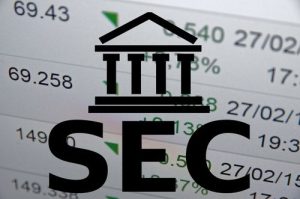- Free Consultation: (212) 897-5410 Tap Here To Call Us
THE SEC’s WAR ON 12b-1 FEES

It has long been clear that the SEC opposes 12b-1 fees, the fees that funds use to compensate investment advisors for their sales and marketing efforts. For the past two decades, the SEC has embarked upon various attempts to repeal Rule 12b-1 or render it meaningless. The SEC, however, has never been able to build the political will to amend or repeal Rule 12b-1 and it remains the law.
The SEC’s latest attack on 12b-1 is a classic example of rule-making by enforcement. On February 12, 2018, the SEC issued a press release announcing its new Share Class Selection Disclosure Initiative (SCSD Initiative). The SCSD Initiative relies on Section 206 of the Investment Advisers Act of 1940 (the “Advisers Act”) which imposes a fiduciary duty on investment advisers to act in their clients’ best interests, including an affirmative duty to disclose all conflicts of interest. When an adviser receives 12b-1 fees from a mutual fund it presents a possible conflict of interest if a less expensive share class is available. Prior to the SCSD Initiative, the industry standard was to disclose this conflict of interest in a straight forward manner.
The SCSD Initiative and subsequent guidance put out through FAQs has effectively amended 12b-1 by requiring disclosure of:
- “The fact that different share classes are available”;
- “The fact that the adviser has financial interests in the choice of share classes that conflict with the interests of his clients”;
- “Whether there are any limitations on the availability of share classes to clients that result from the business of the adviser or the service providers that the adviser uses”;
- “Whether an adviser’s practices with regard to recommending share classes differs when it makes an initial recommendation to invest in a fund as compared to: (a) when it makes recommendations regarding whether to convert to another share class; or (b) when it makes recommendations to buy additional shares of the fund”;
- “The circumstances under which the adviser recommends share classes with different fee structures and the factors that the adviser considers in making recommendations to clients”; and
- “Whether the adviser has a practice of offsetting or rebating some or all of the additional costs to which a client is subject (such as 12b-1 fees and/or sales charges), the impact of such offsets or rebates, and whether that practice differs depending on the class of client, advice, or transaction.”
Under the SCSD Initiative, the Enforcement Division recommended standardized, “favorable” settlement terms to investment advisers that self-reported failure to disclose conflicts of interest associated with the receipt of 12b-1 fees to advisory clients when a lower-cost share class of the same mutual fund was available. Enforcement Division also required self-reporting advisers to disgorge fees to the allegedly harmed clients, but did not impose a civil monetary penalty. The press release also warned that the SEC expected to recommend stronger sanctions against any investment advisers that failed to self-report. As the Co-Director of Enforcement put it: “we promise that if we find [an adviser] later we will punish [it] more severely.” S. Garmhausen, SEC to Advisors: Don’t Test Us, Barron’s (Mar. 2, 2018).
The SCSD Initiative was an extremely useful weapon in the SEC’s war on 12b-1 fees. Within a year, 79 investment advisers self-reported their disclosure “violations,” entered into settlements with the SEC, and refunded more than $125 million. To date, 95 firms have reached settlements and disgorged roughly $140 million.
The Initiative expired after 120 days—and that is when the Commission started to deliver on its promise to punish the holdouts more severely. Since the SCSD Initiative deadline for self-reporting passed in September 2019, the SEC has issued orders against two firms that were eligible to self-report pursuant to the initiative, but failed to do so. See Mid Atlantic Financial Management Inc. (ordered to pay $1,027,002 in disgorgement and prejudgment interest and a $300,000 civil penalty) and BPU Investment Management Inc. (ordered to pay $692,107 in disgorgement and prejudgment interest and a $235,000 civil penalty). In April 2020, the SEC announced that it had reached settlement with three firms that represented the last of the SCSD Initiative self-reporting advisers. Going forward, even firms that self-report insufficient 12b-1 disclosures should expect the SEC to demand disgorgement of those fees as well as a substantial civil monetary payment.
Herskovits PLLC has a nationwide practice defending against SEC investigations and adversarial proceedings. Feel free to call us at 212-897-4310 for a consultation.





